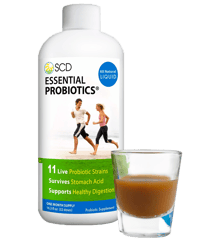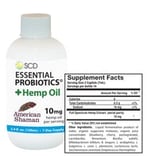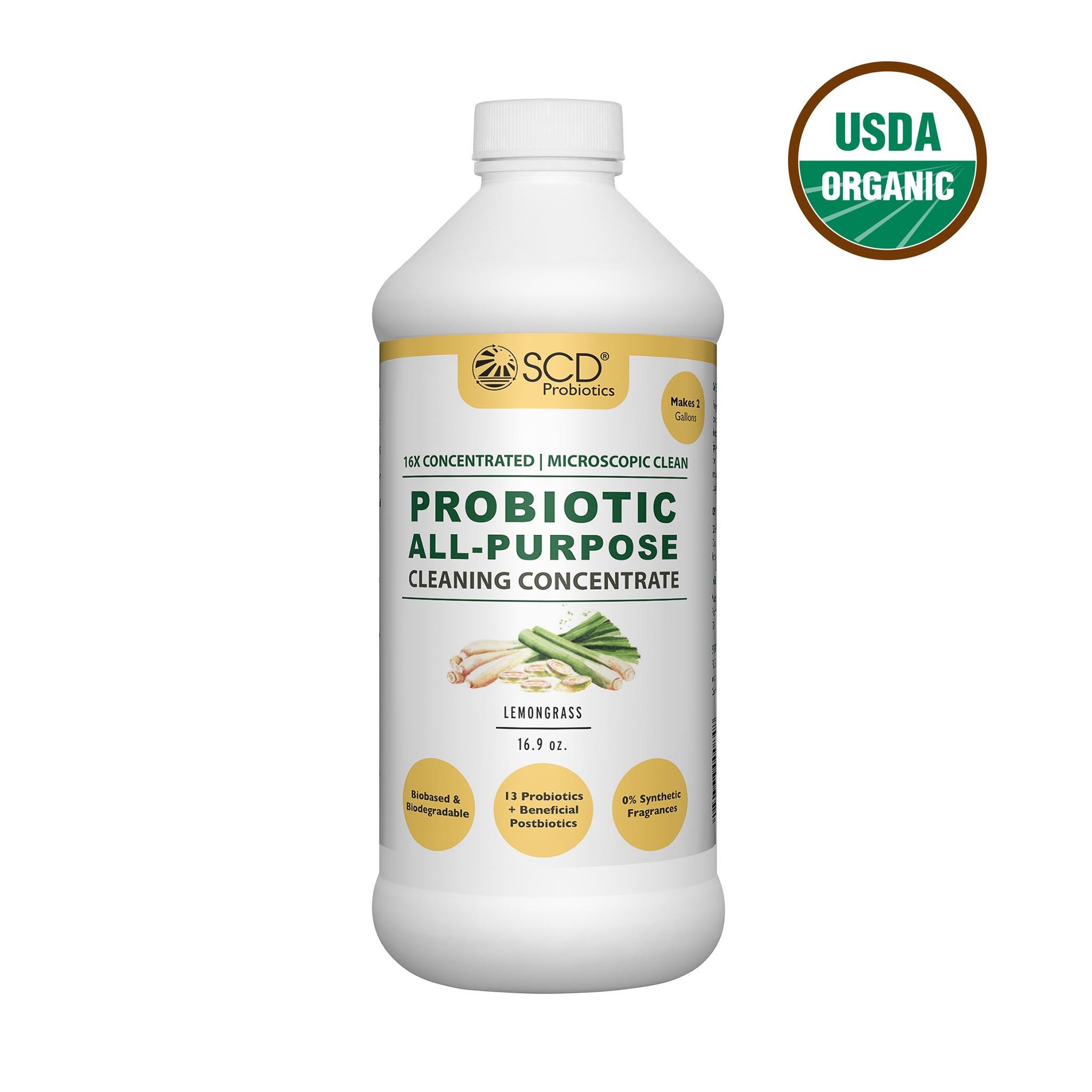Coronavirus: Known COVID-19 Symptoms, How to Respond, and How to Support Your Immune System Naturally
The novel coronavirus (COVID-19) was officially declared a pandemic by the World Health Organization on March 11, 2020—meaning the virus has now spread worldwide and is spreading throughout the US. As a business, we are paying close attention to how this affects our employees and operations, but especially because we focus on health and wellness, we have you, our customers, in mind as well.
Currently in the United States, we are seeing different levels of COVID-19 activity and severity, with “hot spots” in certain locations like New York, Detroit, and Louisiana. However, all U.S. states have reported COVID-19 cases and community spread to the CDC. Nationally, we are in the acceleration phase of the pandemic. The CDC currently expects that in the coming months, most Americans will have been exposed to the virus.
Known Coronavirus Symptoms
Coronaviruses are nothing new—many of them are behind common cold cases. But COVID-19 itself is a new coronavirus and can result in more severe cases and symptoms, as well as pneumonia—especially among older people, those with already low immune systems, and others who are considered high risk. And just like the flu, it can cause death, which is one of the reasons it’s so important to stop its spread: so it doesn’t turn into another seasonal flu.
The initially reported coronavirus symptoms remain the same: dry chest cough, fever, and shortness of breath. But as we continue to learn more about COVID-19 and see more cases across the globe, we are continuing to learn about additional symptoms—which may appear 2-14 days after exposure:
- Shortness of breath: this is not the first symptom of COVID-19, but it is the most severe. Anyone experiencing shortness of breath should immediately contact their health care provider or urgent or emergency care. If your shortness of breath is severe, call 911. People experiencing this symptom feel a chest tightness and as though they cannot breathe deeply enough to fill their lungs. Emergency warning signs include “persistent pain or pressure in the chest” and “bluish lips or face,” which indicate a lack of oxygen.
- Sudden confusion: another one of the signs of a worsening case, if you or your loved one is suddenly confused or unable to wake up or remain alert, this is an emergency sign to seek medical care immediately—especially if it is combined with shortness of breath.
- Fever: Fever can be a tricky symptom, as different people run at different “normal” temperatures and temperatures can also fluctuate throughout the day. Take your temperature later in the day for a more reliable reading, as fevers will spike in the late afternoon and early evening. A consistent reading over 100° F indicates fever.
- Dry chest cough: With spring allergies awakening, and cold and flu season still active, this symptom is perhaps the trickiest to decipher. The dry cough associated with COVID-19 however, is not an irritating tickle in your throat but a deep, dry cough you feel in your chest—near your breastbone or sternum. This signals bronchial inflammation.
- Body aches, fatigue, and chills: If you’ve experienced this symptom with the flu, you’ll likely recognize this one easily—though you may or may not be able to tell if it’s the flu or COVID-19 based on this symptom alone. Some people may experience milder body aches and chills, while others can experience more sever cases. And a WHO report found that approximately 40% of 6,000 lab-confirmed cases experienced fatigue. One clear sign of COVID-19 is if your symptoms not only don’t improve after a week but worsen.
- Digestive issues: Digestive issues were not clearly connected to COVID-19 initially, but with more research on survivors becoming available, a connection has become clearer. Sanjay Gupta recently cited a new study from China examining some of the 200 earliest patients and found that approximately half experienced digestive and stomach upset symptoms. The study described milder cases with initial digestive symptoms, including diarrhea. These cases often did not experience fever—but these patients did experience testing delays and diagnosis and took longer to “clear the virus from their systems.”
- Loss of smell or taste: perhaps the most unusual symptom is a loss of smell or taste, called anosmia. The American Academy of Otolaryngology-Head and Neck Surgery reported this symptom as one they’ve seen in patients who tested positive for COVID-19, without any other symptoms.
- Headache, sore throat, and congestion: The same WHO report found that nearly 14% of the 6,000 cases experienced headache and sore throat, with only 5% experiencing nasal congestion. These symptoms are particularly tricky, as they’re milder and closely resemble the common cold.
What Should You Do if You’re Experiencing COVID-19 Symptoms?
While guidance is continuing to be updated based on the most up-to-date information, the current CDC guidance is that if you are experiencing mild to moderate cold or flu-like symptoms, stay at home, quarantine yourself from your family or roommates, and try to manage them.
Rest, hydration, and fever-reducing medications are all recommended.
Hydration is particularly important if you are experiencing digestive symptoms, like diarrhea. Probiotic supplements like Essential Probiotics can also help, as they have been shown to restore balance to your digestive system and relieve symptoms of upset, including diarrhea, gas, and bloating.†
If you are at higher-risk—including adults over 60, people with asthma, HIV, diabetes, chronic lung disease, heart disease or heart failure, kidney disease, cancer (or are undergoing chemotherapy), are extremely obese, or have an autoimmune disease or other serious underlying health conditions, you should contact your doctor early, even in the case of mild symptoms. If you are younger and have any of the underlying health conditions, you are still at higher risk.
If you are not sick, how can you stay healthy and reduce your chances of either contracting COVID-19 and other seasonal illnesses like the flu or becoming a carrier and infecting your loved ones and our communities’ vulnerable members?
Social Distancing First
Be aware, follow the guidance of public health experts, limit social contact and avoid public places, and practice thorough hygiene at all times. We can all do our part to stop the spread. On March 16, the White House announced a "15 Days to Slow the Spread" program--a nationwide effort to slow COVID-19's spread by implementing social distancing, and the CDC is providing additional guidelines:
- If you feel sick, stay home. Contact your doctor.
- If your children feel sick, keep them at home and contact their doctor.
- If you are an older person (60+) or have an underlying health condition that puts you at risk (including diabetes, heart disease, or a weakened immune system), stay at home.
- Avoid social gatherings in groups of more than 10 people.
- Work or school from home whenever possible.
- Do not visit nursing homes or retirement centers unless required to provide critical assistance.
- Avoid unnecessary travel, trips to the store, and social engagements. If you do not need to venture out, stay at home. Keep shopping trips for necessities, like groceries and medication, to a minimum.
- Wash your hands regularly and disinfect surfaces regularly. Avoid touching your face. Cover your face when you cough or sneeze. Use an alcohol-based hand sanitizer when soap and water are not available.
- Most local governments have closed schools and restricted restaurants and coffee shops to carry out or curbside pick-up only. Do not dine in at restaurants, even if they are open.
- If you must go to a public space, the CDC is recommending "the use of a cloth face covering to keep people who are infected but do not have symptoms from spreading COVID-19 to others." These cloth face covers are meant to protect other people in case you are infected (people can be infected and asymptomatic, enabling the spread of the disease).
- An important distinction: these cloth face coverings are not surgical masks or N-95 respirators. From the CDC: “Medical face masks are critical supplies that should be reserved for healthcare workers and other first responders.”
- It is also important to note that cloth face covers are not a substitute for social distancing, which is our first line of defense.
- While in public, even if you are wearing the recommended cloth face cover, keep 6 feet of distance between yourself and others.
Now’s also the time to pay special attention to your health, supporting your body so your immune system can run optimally. Ahead, we cover 4 major factors that are key to supporting your immune system naturally—so it’s ready to defend your body when faced with pathogens.
Sleep & Stress Management
The science is clear: sleep is seriously necessary for good health and sleep deprivation weakens your immune system. Now’s the time to get as much extra sleep as you can. Practicing good sleep hygiene can help: that means no screens in your bedroom and putting screens down at least 1 hour before bedtime. Limit daytime naps to 30 minutes or less, avoid large meals and caffeine close to bedtime, and make sure your bedroom is a quiet, relaxing, and dark environment.
Stress can also affect your ability to sleep well and run you down, mentally and physically—and a run-down body won’t be at its best at defending itself. Stress can also affect your ability to sleep well, and research has also shown that stress can alter our gut’s microbial makeup. And since 70% of our immune system is housed in our gut, all of this adds up to say that stress management is extra important when it comes to supporting your immune health.
One of the simplest methods to manage stress? Breathing. Dr. Emeran Mayer, MD is a gastroenterologist and author of The Mind-Gut Connection. Dr. Mayer recommends “taking deep, belly breaths for five minutes,” naming it “the single most effective way to calm the brain and the gut.”
Herbal and probiotic supplements can also help. Full-spectrum hemp extract, like the one found in our Essential Probiotics + Hemp, is known to support a feeling of calm and help you manage daily stress.† And adaptogens like reishi mushroom, found in our bio-fermented Herbal Probiotics, can help your body adapt to stress and support your sleep cycles.†
Nutrition & Maintaining a Healthy Microbiome
Because 70% of our immune system is in our gut, and because our beneficial microbes help us digest our food and extract the nutrients that keep us healthy, nutrition is a major part of immune health. One of the best things you can do—at any time, but especially during flu season and the current COVID-19 pandemic—is eat a diverse, colorful and anti-inflammatory diet with lots of prebiotic fiber, which is what feeds the beneficial microbes in your gut.
Limit sugar intake, as sugar can not only be inflammatory, but it’s what the bad bacteria in our gut love to feed on—too much sugar can contribute to throwing off the microbial balance in your gut.
That means choosing complex carbohydrates like whole grains, leafy greens, fruits and vegetables—which not only provide your gut microbes with healthy fiber, but also contain higher levels of vitamins, micronutrients, and antioxidants than processed foods. And antioxidants themselves have been shown to support our immune systems by fighting free radicals in the body.
It’s also a good idea to supplement with a bioavailable probiotic—ours deliver an ecosystem of probiotics in a liquid form for increased bioavailability and are shown to survive stomach acid to actually make it to your gut. And our Herbal Probiotics pairs live probiotics with bio-fermented organic herbs to provide a rich source of antioxidants, vitamins, and minerals.
Exercise
Exercise promotes good overall health and good circulation, enabling the parts of your immune system to move freely throughout your body and do their job. It can also help you sleep better, improve your mood, and aid you in managing stress better.
In most areas of the country, gyms are under lock down but people are still able to move freely outside. Check first with the advisement of your local government, but as you start to feel cooped up inside, getting outdoors for a walk or jog is a terrific way to boost your mood, feel connected to nature and the world, and get a little exercise. And for pet owners, your dogs will appreciate the outdoor exercise too.
Stay Hydrated
Drinking water keeps your entire body functioning, including your lungs and mucus: hydrating well can help keep your mucus thin and flowing and help clear your lungs of any opportunistic pathogen. It’s also a good idea to limit alcohol intake, which can be both inflammatory and dehydrating—and interrupt your sleep.
And if you’re in a part of the country where winter has yet to thaw, you can add moisture to dry indoor air using a cool mist humidifier—which can help keep your mucous membranes moist and help limit viruses' ability to survive, as they spread more easily in dry air environments.



 SCD Essential Probiotics
SCD Essential Probiotics








